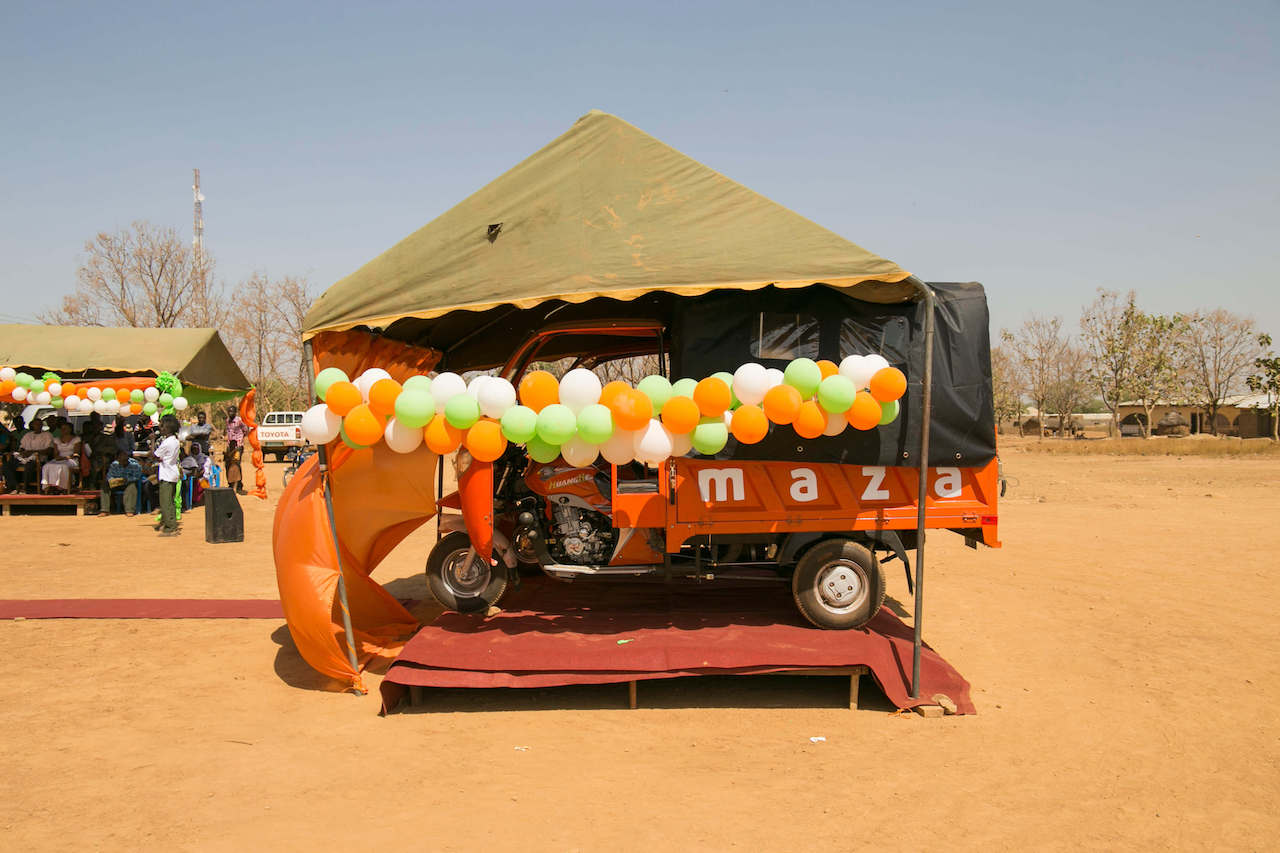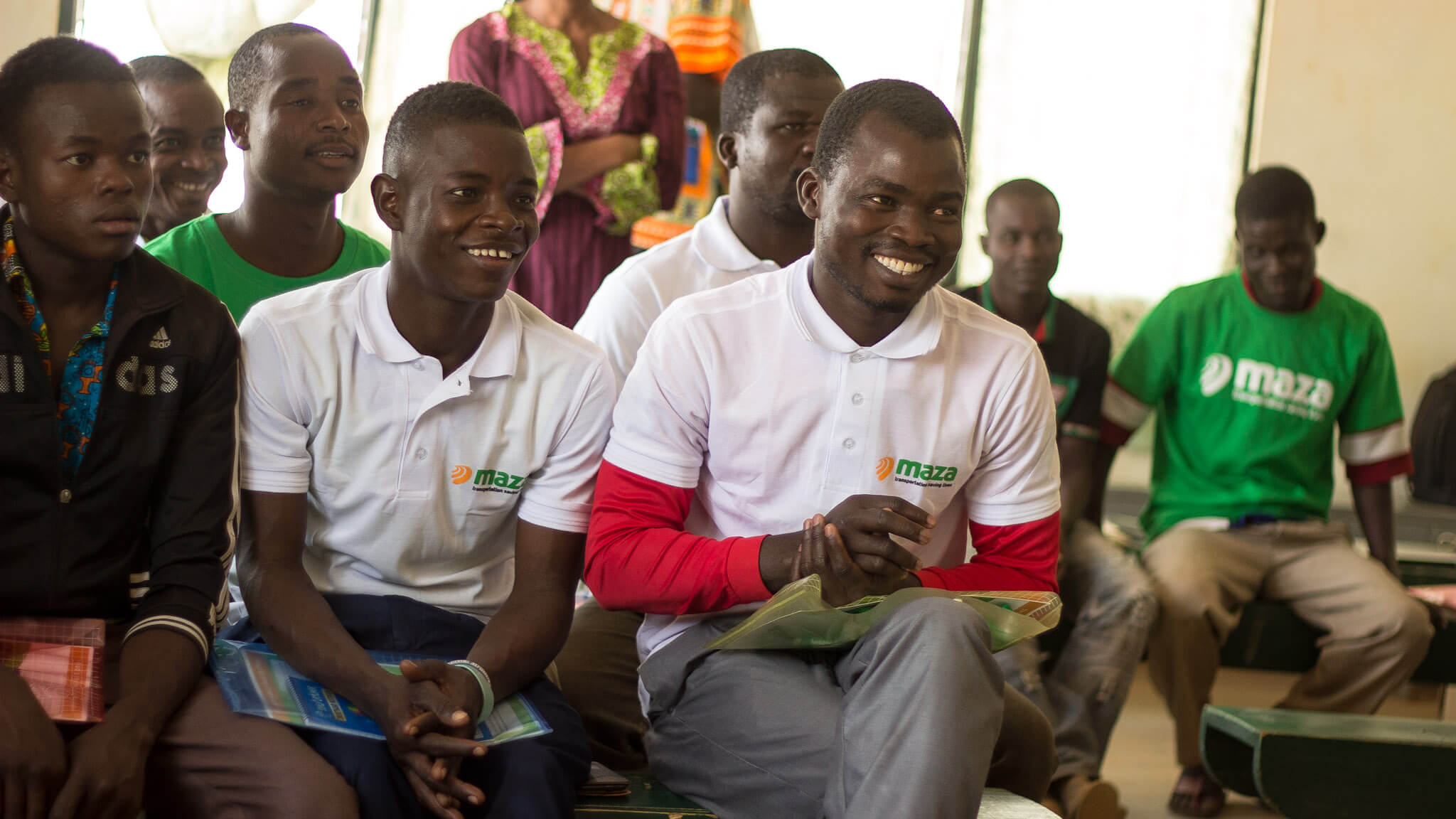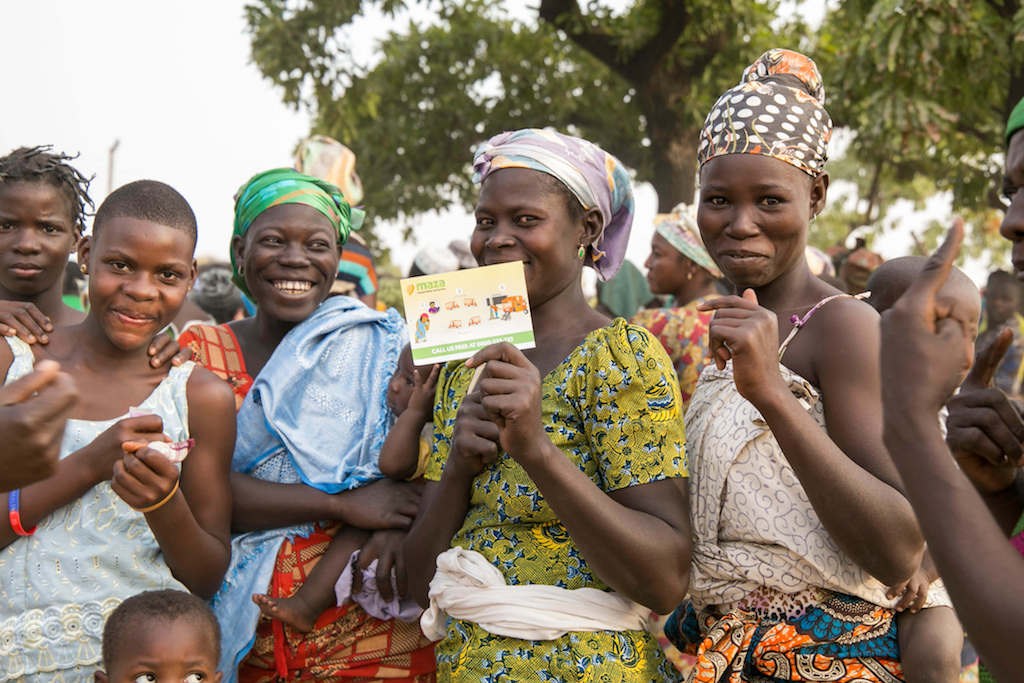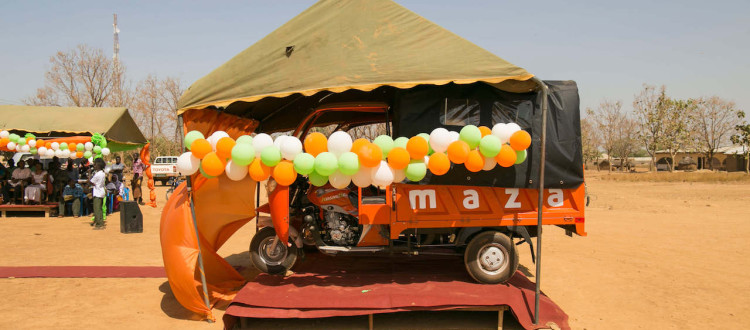MAZA, transportation saving lives in rural Ghana: from concept to reality
MAZA, the social enterprise I have been working on for most of 2015, has finally launched! The launch event took place on Thursday, 17 December, 2015 in Chereponi District in the Northern Region of Ghana. We had excellent turnout from local community members, traditional and political authorities as well as leaders from district, regional and national levels of the Ghana Health Service, National Ambulance Service, National Catholic Health Service, National Health Insurance Agency and so many other departments and agencies. Media coverage of the launch can be found at: http://graphic.com.gh/news/general-news/55430-chereponi-gets-13-tricycle-ambulances.html.

It has taken almost two years to go from a simple concept bounced off a friend during a casual lunch in Accra in early 2014, to a basic schematic description in a PowerPoint presentation to enable solicitation of constructive feedback from a wide range of experts in mid-to-late 2014, to formative research in five rural districts in northern Ghana in mid-2015, and finally, to co-design with the Chereponi District Health Administration, operational planning, community engagement and launch in the last few months of 2015. And now MAZA, which means quickly in Hausa, is fully operational.
The day after the launch, we handed over 13 passenger motorized tricycles to drivers from remote rural areas of Chereponi district to use to meet their communities’ transportation needs, including that for urgent health care. These 13 drivers were selected through a rigorous screening process and were provided with basic orientation in first aid, road safety, vehicle maintenance, and entrepreneurship. We will continue to teach and coach them on these skills during our monthly visits to the district.

How MAZA Works
MAZA’s vehicles, motorized tricycles that have been adapted for passenger use, are leased to drivers from remote rural communities who work-and-pay to own them over a two-year period. The cost of the tricycle to the driver is subsidized by MAZA. In exchange, the drivers commit to being on duty call for urgent health care transportation twice a week on a predictable schedule in a defined catchment area so they can easily reach people who call MAZA’s toll-free hotline. MAZA is partnering with the National Ambulance Service so that in the event of an emergency case in a remote community, MAZA drivers can transport the sick person up to the point where they can hand them over safely to the ambulance, which is usually stationed at the district capital. On the days that the drivers are not on duty call, they can use the tricycles to meet other important transportation needs in the communities such as taking people to market or hauling produce from farms.
MAZA is also partnering with the Ghana Health Service and the National Catholic Health Service to subscribe their antenatal clients who anticipate needing urgent health care transportation to a hospital or clinic when they go into labour. We will work with the pregnant women and their families over time to encourage saving through mobile money for MAZA’s transportation service such that when labour starts, no time is lost with looking for money, looking for transportation or getting permission from their husbands or in-laws about the plan for labour and delivery. MAZA’s goal is to eliminate these types of delays that can mean the difference between life and death for the pregnant woman and her baby.

Motivation for MAZA
In the rural areas of Ghana, sick people trying to urgently get to hospital face prohibitive obstacles such as long distances (e.g. > 30km, > 4-hour walk), impassable roads, few motorized vehicles, unreliable transportation service, and lack of money to pay for appropriate transportation. This phenomenon is one of the most crucial root causes of the urban/rural disparity in premature deaths in Ghana, especially for the most vulnerable members of the population—pregnant women and infants. MAZA seeks to reduce these types of preventable deaths by providing an innovative social enterprise transportation solution at the community level that is safe, accessible, affordable and reliable.
MAZA also recognizes that the transportation needs of remote rural communities are immense. This is especially true for socioeconomic purposes such as transporting farm produce and accessing local markets for buying and selling. Thus, our vehicles are multi-purpose by design; the benches have hinges that enable them to come down for seating passengers or go up to maximize space for hauling goods. We ensure reliability of our urgent health care transportation service through the drivers’ on duty call schedule and use of a mobile technology platform that links MAZA to our drivers and subscribers.
Looking Back, Looking Forward
As 2015 draws to a close, it is only fitting to reflect on MAZA’s journey thus far and express my profound gratitude to all the people (family, friends, colleagues and rural community members) – almost 100 at last count – who have provided critical input into the design of MAZA and donated their time, effort, creativity, insights and other resources to get us to this point. Thank you!
I would also like to share my aspirations for the future of MAZA and to encourage supporters and skeptics alike to stay updated on our progress over the next few years. In 2016, MAZA aims to: (1) learn from our drivers and the pregnant women and their families in the remote rural communities, which parts of our operational and business models work well and which do not so that we can iterate quickly and improve our models on an ongoing basis; and (2) scale up to two additional rural districts in Northern Region that need our service.
Beyond 2016, we plan to scale up further in order to maximize the health and socioeconomic impact that our transportation service can have. In future years, we also plan to explore urgent health transportation solutions for remote communities that are cut off from their nearest health care facility by water bodies such as rivers and streams. Stay tuned for updates at www.facebook.com/MAZAHealth and www.twitter.com/ContactMAZA.
In the meanwhile, on behalf of the MAZA team, I would like to wish you a Happy New Year and the very best of health, happiness and prosperity for 2016.
To learn more about MAZA, visit: www.mazatransport.org.
To support MAZA’s work with a donation, visit: http://www.mazatransport.org/donate-options/.
The author is the founder and CEO of MAZA. She can be reached at ntwumdanso@mazatransport.org.



